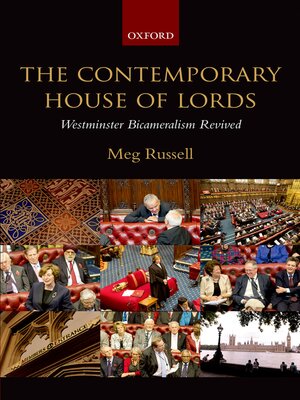
Sign up to save your library
With an OverDrive account, you can save your favorite libraries for at-a-glance information about availability. Find out more about OverDrive accounts.
Find this title in Libby, the library reading app by OverDrive.



Search for a digital library with this title
Title found at these libraries:
| Library Name | Distance |
|---|---|
| Loading... |
As the second chamber of the Westminster parliament, the House of Lords has a central position in British politics. But it is far less well-studied and well understood than the House of Commons. This is in part because of constant expectations that it is about to be reformed - but most Lords reform plans fail, as the Coalition government's dramatically did in 2012. Meanwhile, following a landmark change in 1999 which removed most of its hereditary members, the Lords' role in the policy process has grown. Understanding the chamber is therefore now essential to understanding politics and parliament in Britain. This book provides the first detailed portrait of the post-1999 Lords, explaining who sits in the chamber, how it operates, and crucially what policy impact it has. Its membership is shown to be more diverse and modern than many would assume, and its influence on policy to be substantial. As a 'no overall control' chamber, in which no party has a majority, it has inflicted numerous defeats on the Blair, Brown and Cameron governments, and become an important site of negotiation. It has provided a power base for the Liberal Democrats, and includes a group of almost 200 independents who now play a pivotal role. Close study of today's House of Lords demolishes some common myths about British politics, and also about how two chamber parliaments work. This book, as well as focusing on the contemporary Lords, provides a historical and comparative context for British bicameralism, asks whether the Lords can be considered 'legitimate', and describes recent reform efforts and possible future reforms.







